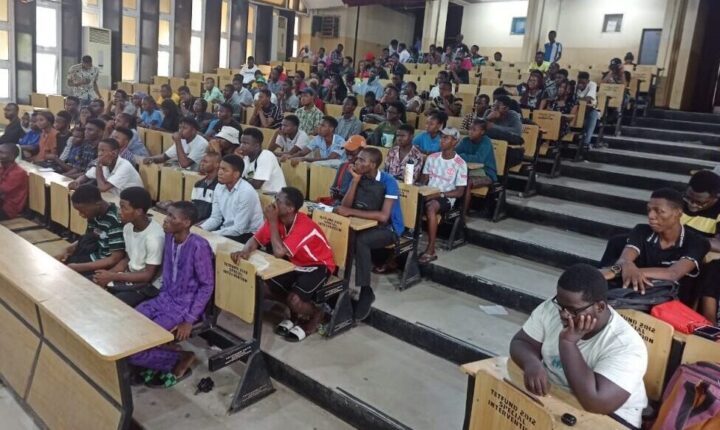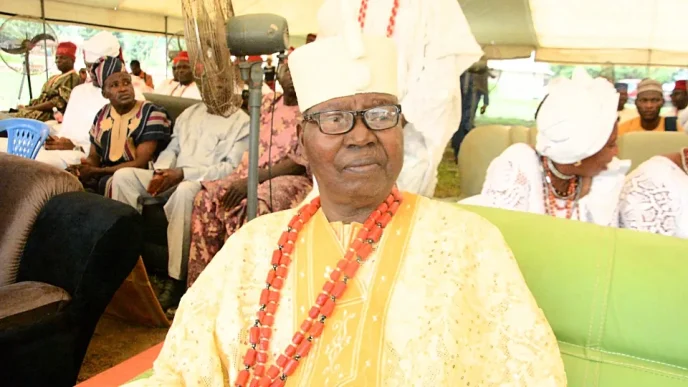BY LUKMAN AHMED OMEIZA
The Nigerian higher education system is suffering from a deep-seated intellectual crisis, marked by poor research productivity and low scholarly impact. While universities in other parts of Africa and the developing world are making notable strides in research, innovation, and global visibility, Nigeria lags behind with a system that increasingly prioritises paper qualifications over academic substance. The result is a generation of professors and PhD holders whose contributions to their fields are negligible, both locally and internationally. More than 85 percent of Nigerian professors and PhD holders have an h-index of less than 5 in the Scopus and Web of Science databases.
This figure is not just alarming, it is a stark reflection of the country’s deteriorating academic culture. In contrast, countries like South Africa, Egypt, and Kenya have managed to build relatively stronger academic reputations within the African continent. South African universities such as the University of Cape Town and Stellenbosch University produce world-class research across diverse disciplines and consistently attract international funding and collaboration. Many South African academics boast h-indices well above 20 or even 30, with consistent publications in high-impact journals.
Egypt, despite its political and economic challenges, has invested in research and development across science, engineering, and medicine. Egyptian universities regularly feature in global university rankings, and the country has developed robust partnerships with institutions in Europe and North America. Kenya, though not as advanced as South Africa or Egypt, still surpasses Nigeria in terms of research focus and academic cohesion. Institutions like the University of Nairobi have developed specialised research units and maintain strong regional influence in agricultural and health-related studies.
Advertisement
When compared with Asian counterparts, the disparity becomes even more pronounced. Malaysia, for instance, has rapidly transformed its higher education sector through deliberate investment in research infrastructure, internationalisation, and talent development. Institutions like Universiti Malaya and Universiti Sains Malaysia are now globally ranked and attract international scholars and grants. A large number of Malaysian professors have h-indices ranging from 10 to over 40, reflecting meaningful scholarly output.
India, despite its large population and complex education landscape, is home to world-class institutions such as the Indian Institutes of Technology (IITs) and the Indian Institutes of Science Education and Research (IISERs), which produce cutting-edge research. Indian scholars regularly publish in top-tier journals, and the country’s research in pharmaceuticals, computer science, and space technology is globally respected.
Even Kuwait, with a relatively small population, invests substantially in academic research, particularly in engineering and petroleum sciences. And in South Korea, institutions like Seoul National University and KAIST (Korea Advanced Institute of Science and Technology) stand at the forefront of global innovation, powered by strong government support, accountability mechanisms, and an academic culture that prizes merit over mediocrity.
Advertisement
In stark contrast, the Nigerian academic environment remains largely unproductive and inward-looking. Universities continue to churn out PhD holders who lack the capacity for independent research, innovation, or practical problem-solving. Many doctoral graduates are unable to design a basic experiment, write a publishable paper, or articulate how their work can contribute to industry or national development.
In many cases, the PhD has become a hollow credential, awarded more for endurance than for intellectual merit. This disconnection between academia and societal needs is perhaps the most troubling aspect of the crisis. What is the essence of having a PhD if one cannot solve real-world problems in their field? A professor who cannot mentor young researchers, produce original work, or attract international grants is not contributing meaningfully to their institution or the country. Research excellence is no longer optional, it is a fundamental requirement in the modern academic landscape.
Another major concern is the persistent agitation by the Academic Staff Union of Universities (ASUU) for improved salaries and welfare packages, which often ignores the underlying issues of performance and accountability. While fair remuneration is essential, it is not enough to pour money into a broken system. Without rigorous reforms, increased funding only sustains inefficiency and academic complacency.
If the academic sector continues to reward mediocrity and ignore merit, no amount of funding will deliver the desired change. There is also the uncomfortable truth that many individuals in the Nigerian academic system have no business being there. The process of academic recruitment and promotion is often driven by favoritism, tribalism, and patronage rather than merit. Many university leaders today lack the intellectual vision and capacity to steer institutions toward relevance and excellence. These individuals cannot drive innovation or inspire meaningful change, because they themselves are products of a failed system.
Advertisement
To salvage Nigerian higher education, there must be a complete overhaul of the system. Doctoral education must be restructured to emphasize rigorous research training, global engagement, and problem-solving. Promotion to professorial ranks must be tied to measurable scholarly contributions, including publications in reputable journals, h-index growth, successful supervision of postgraduate students, patents, and grants won.
No one should rise to the rank of professor without demonstrating an international academic footprint. Nigerian universities must redefine their purpose. The higher education sector should not only produce graduates, but also serve as a national think tank, generating knowledge that solves local problems and advances global understanding.
Institutions must cultivate international collaborations, attract foreign students and researchers, and commit to research that addresses the country’s pressing developmental challenges. Nigeria must move beyond superficial academic metrics and begin to hold its scholars to higher standards. Without urgent and far-reaching reforms, the current trajectory will only deepen Nigeria’s intellectual isolation and further erode the credibility of its academic institutions. True national development is impossible without a strong, functional, and competitive higher education system.
Dr Lukman Ahmed Omeiza, former chairman of the Nigerian community in Ukraine, is a postdoctoral research fellow at L.N. Gumilyov Eurasian National University, Astana, Kazakhstan.
Advertisement
Views expressed by contributors are strictly personal and not of TheCable.












